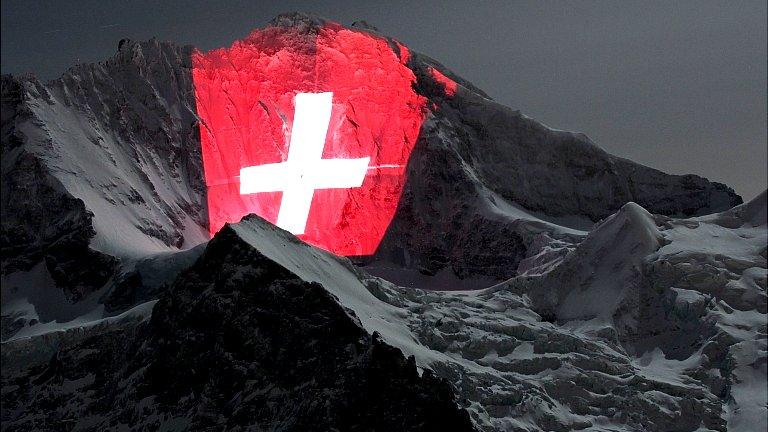Norway's EU deal 'not right for UK'
- Published
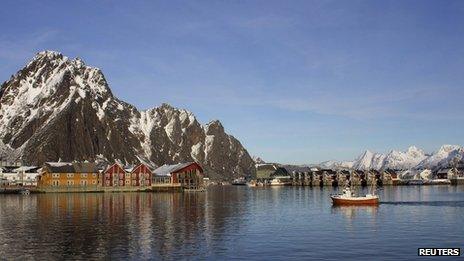
Svolvaer in the Arctic: Many Norwegians are a long way from Oslo - and even further from Brussels
Norway's model of close association with the EU would not work for the UK, the country's main opposition leader Erna Solberg says.
Norway contributes about 240m euros (£205m; $313m) annually to the EU, yet it has no seat at the meetings where EU decisions are taken.
So access to the EU single market is expensive and entails a "democratic deficit" for Norway, Ms Solberg says.
UK voters would never tolerate such a deal, she believes.
In a keynote speech in January the UK Prime Minister David Cameron pledged to hold an in/out referendum on EU membership by the end of 2017 at the latest - if the Conservatives win the next general election.
He says the EU must reform to allow countries like the UK to have a looser relationship with it and repatriate certain powers from Brussels.
His speech sparked fresh interest in the UK in the association models that Norway and Switzerland have with the EU. Both countries are more affluent than most of their EU neighbours.
But Mr Cameron does not want to copy either of those association models, Ms Solberg told the BBC.
Lacking a voice
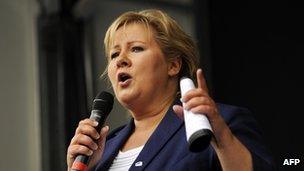
Erna Solberg's Conservatives are leading in opinion polls
In two referendums - in 1972 and 1994 - Norwegians voted no to joining the EU (previously the European Community). But the country was deeply split on the issue, with the "no" camp getting just above 50%.
Opposition to EU membership has grown in Norway since 2011 - the "no" camp has been consistently above 70% in opinion polls.
Norway has prospered in the European Economic Area (EEA), established in January 1994, but "the EEA is not a good example for the UK", said Ms Solberg. Her Conservative Party is currently ahead in Norwegian opinion polls and many expect her to win the general election scheduled for September.
In a speech at the London School of Economics (LSE) this week, she said the EEA deal was not a big debating topic for Norwegians, despite the fact that "Norway has no voting rights in the EU - it is not at the negotiating table".
"It's a small country, with a very open economy. The British wouldn't accept that [deal]," she said.
In her view belonging to the EEA is essential for Norway's exports, but it means Norway has adopted three-quarters of EU legislation without having a say. "Not many countries would live with such a position," Ms Solberg said.
That "democratic deficit" is one of the main reasons Switzerland terminated its EEA agreement, following a referendum in 1992.
Ahead of any referendum on EU membership it is "crucial", Ms Solberg said, for the UK to "think about having so little influence over EU laws".
Healthy economy
The EEA agreement also entails a huge amount of bureaucracy for Norwegian officials - and that paperwork would be much greater for the UK, were it to have a similar deal with Brussels, Ms Solberg warns.
Despite those drawbacks the Conservative leader calls herself "pro-European".
Norway's economy is growing at 3%, with an unemployment rate of just 2%, and it has accumulated a huge sovereign wealth fund. Much of its growth has come from oil and gas, accounting for 21% of national output (GDP).
In Norway, unlike the UK, the Eurosceptic politicians tend to be left-wing.
Agriculture Minister Trygve Slagsvold Vedum has long campaigned against the EEA agreement, with his colleagues in the Centre Party.
"If I was British I would be against UK membership [of the EU]," he told the BBC.
He wants a much looser trade agreement with the EU.
For many Norwegians the capital, Oslo, already feels remote and Brussels is yet further away.
The leader of the Socialist Left Party (SV), Audun Lysbakken, is another critic of the EEA arrangement.
"Our participatory democracy is being undermined by the EEA agreement, reducing Norway to a passive recipient of EU legislation. It leads to widespread regulation of details, and harms Norwegian regional policy as economic policy. The agreement has significantly more disadvantages than advantages," he said.
As one of the world's richest countries Norway is able to subsidise its farmers generously - they get 14bn kroner (£1.6bn; $2.4bn) annually, Mr Slagsvold Vedum says. Without state support they would probably struggle to compete internationally, especially as they have to cope with a tough northern climate.
It is doubtful whether the EU would accept such a level of additional subsidy in its Common Agricultural Policy.
Norway's Nordic neighbours are in the EU, apart from Iceland, where there is a lot of opposition to joining.
Finland and Sweden joined after going through periods of economic hardship, and while Norway remains prosperous there seems little chance of it joining for quite some time.
- Published28 March 2023
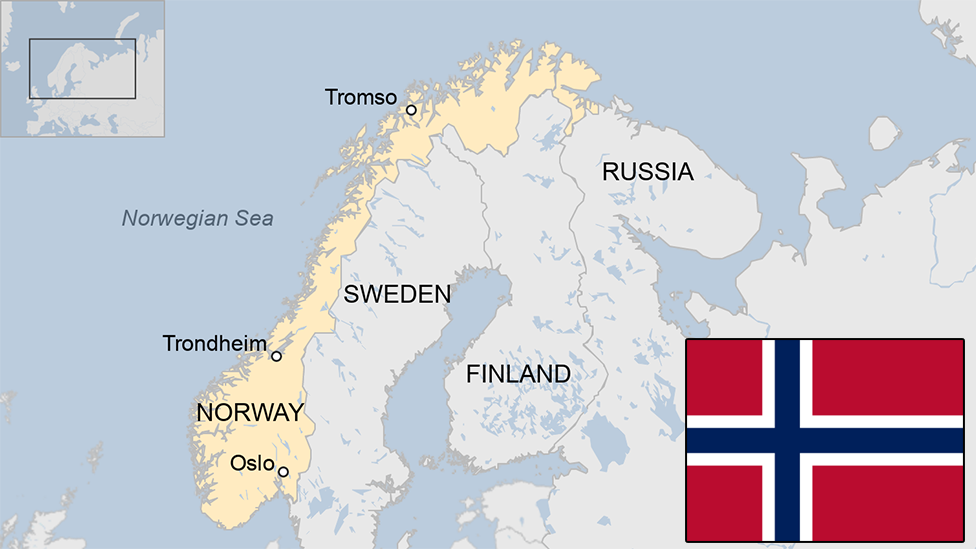
- Published23 January 2013
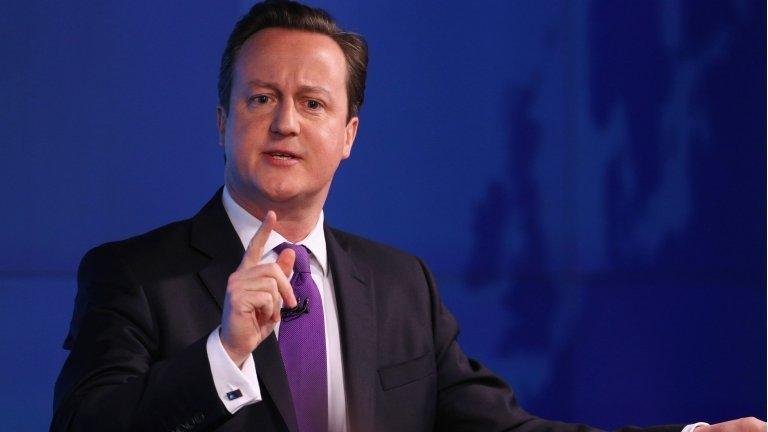
- Published24 January 2013
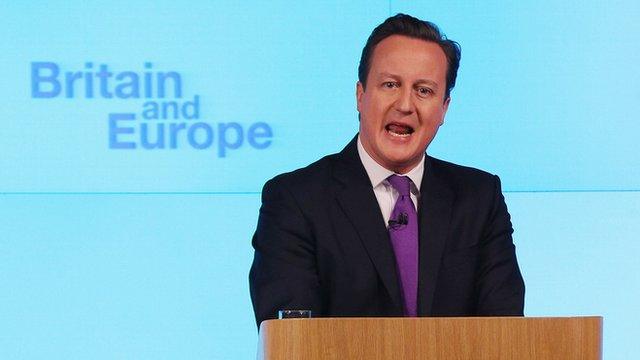
- Published6 December 2012
